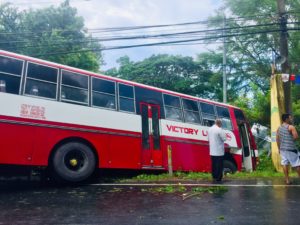LUCENA CITY — A veteran Army officer in the anti-insurgency war has been appointed to lead government soldiers in the Southern Tagalog region.
Brig. Gen. Elias Escarcha has replaced Major Gen. Rhoderick Parayno as commander of the Army’s 2nd Infantry Division (2ID) based in Camp Capinpin in Tanay town in Rizal province, Capt. Patrick Jay Retumban, public affairs chief of the 2nd ID, said Sunday.
Parayno retired on May 3 after 38 years of military service, the last 30 months as head of the 2ID.
Escarcha is a member of the Philippine Military Academy “Sinagtala” class of 1986 and former deputy commander of the 2ID.
He was also the former head of the Army’s 201st Infantry Brigade based in Calauag, Quezon in 2017.
Escarcha was credited with the neutralization of several New People’s Army (NPA) leaders in the province and mass surrenders of Red-fighters and supporters.
The Army’s 2ID covers Calabarzon and the island provinces of Mindoro Oriental, Mindoro Occidental, Marinduque, and Romblon.
Before his retirement, Parayno reported that most candidates in Southern Tagalog have been conducting their campaigns without paying the so-called “permit to campaign” fee to the NPA rebels.
“Based on our information and continuous monitoring, only a few candidates yielded to the extortion,” Parayno said in an earlier interview.
Parayno attributed the failure of the Maoist-inspired guerrillas to collect the PTC from Interior Secretary Eduardo Año’s appeal and warning to candidates.
Año warned politicians to refrain from paying PTC fees to the NPA for the midterm elections or their names would be publicized.
The Department of the Interior and Local Government (DILG) also issued Memorandum Circular 2018-11 which reminds local officials that giving any form of support to the NPA is against the law.
Violators will face sanctions and criminal charges, including disqualification from the election.
Payment of PTC fees to NPA rebels is also a violation of the Terrorism Financing Prevention and Suppression Act of 2012, according to the military. /lzb


